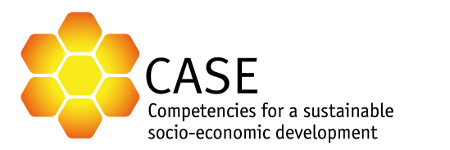Systemic Competence
In an increasingly complex environment a different kind of thinking than the conventional linear one is required. Systemic competence is the ability to understand complex systems and to deal with complexity at the same time. That includes the ability to think beyond the boundaries of disciplines and to link different domains (society, environment and economy), as well as different levels (local, regional, global). It requires the ability to analyze structures within systems and subsystems, but also the ability to identify actors and relationships between them.
Anticipatory Competence
Anticipatory competence is the ability to think in long-term time horizons and thus to anticipate possible future developments. It requires intergenerational thinking and therefore involving and considering different generations in the present and in the future. It includes foresight and the ability to cope with uncertainty and risks. The ability to design sustainable scenarios is just as much a part of it as the targeted development of potentials and opportunities.
Normative Competence
Values and mindsets are motors of behavior. Normative competence is the ability to reflect and to name own values and to understand and accept the values of others at the same time. It means to have a concept of basic values of sustainability, such as responsibility, respect, tolerance and ethics, and to center own behavior around this axis. Normative competence includes the ability to identify and address value-conflicts and dilemmas that arise in achieving, sometimes conflicting sustainability goals. It requires an attitude of inner independence and the freedom to hold against the mainstream.
Strategic Competence
Strategic competence means the ability to design and shape change processes towards sustainability. It is connected with a sense for reality and practical understanding in order to bring ideas and concepts “down to earth”. Management skills, such as the ability to structure processes, organize resources, and deploy them in the right way at the right time, as well as leadership skills are an essential part of this competence. It becomes particularly evident when problems and challenges in implementation arise. For this, creativity and innovative power and a kind of “out of the box” thinking are needed, in order to be able to strike fundamental new paths. In addition, it is essential to have knowledge about effectiveness and efficiency of solutions put into practice in order to repeat successes, but to reduce the repetition of errors.
Interpersonal Competence
As complex systems require a different kind of communication, interpersonal competencies have to be re-defined in the context of sustainability. The prerequisite is an attitude based on diversity, transcultural and pluralistic thinking. The ability to develop interconnections between different stakeholders and to overcome “language barriers” is key. That calls for translation competence, hence, the ability to find a consensus for common terms and to develop a common language. Interpersonal competence further contains the ability to build, shape and maintain (multi-stakeholder) networks in the long term. At the same time it also includes the ability to cooperate successfully in heterogeneous teams. That means to know the success factors and barriers of teamwork and to apply this knowledge in real-world scenarios. Ultimately, communicative skills are of utmost importance, like dialogue- and conflict-skills, but also presentation-, moderation- and rhetorical skills.

